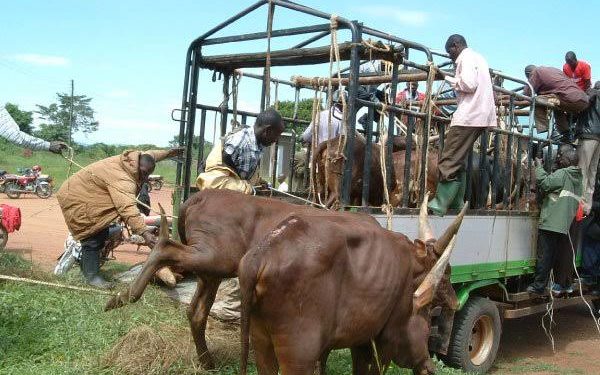In a significant move to combat the rising tide of animal theft in central Uganda, the Savannah Police region launched a comprehensive operation in November 2024, focusing on the districts of Luweero, Nakasongola, and Nakaseke.
The operation, which spanned one month, has yielded promising results in curbing illegal activities linked to cattle rustling and animal theft.
According to a police report, released on 24th December, during the course of the operation, a total of 50 animal theft cases were reported across the three districts, with 461 animals stolen.
However, thanks to the coordinated efforts of law enforcement teams, 352 of the stolen animals were recovered, and 54 suspects were arrested. Of the arrested individuals, 40 have already been taken to court, facing charges related to the theft and illegal transportation of animals.
As part of the operation, officers uncovered several alarming trends and tactics used by criminals involved in animal theft. One of the most concerning discoveries was the prevalence of forged veterinary documents. These counterfeit papers were being used to facilitate the illegal transport of stolen animals out of the affected districts, bypassing security checks at checkpoints.
In addition to this, the use of fake license plates on vehicles transporting the stolen animals was another major red flag. The criminals were also employing unconventional vehicles, such as saloon cars, to smuggle animals. Some of the stolen cattle were slaughtered and transported as beef, while others were hidden in the back seats of the vehicles, making it more difficult for authorities to detect the thefts.
“Criminals have become more sophisticated in their methods, using forged documents and fake plates to evade detection,” said a senior officer involved in the operation. “We have also seen a disturbing trend where even vehicles not typically used for livestock transport, like saloon cars, are now being used to carry stolen animals.”
Challenges in Combating Animal Theft
Despite the successes of the operation, several challenges persist in the fight against animal theft. One of the most significant hurdles is the reluctance of victims to pursue criminal prosecution.
Many farm owners, especially in rural areas, prefer to seek financial compensation for their losses rather than pushing for custodial sentences for the offenders. This tendency is hindering the long-term deterrence of these crimes.
In some instances, animal thefts go unnoticed for extended periods, particularly in remote areas where farm owners live far from their properties. Additionally, the common practice of allowing cattle to graze freely on unfenced land leaves the animals vulnerable to theft. Theft incidents often occur under the cover of night, making it more difficult for farmers to detect or prevent the crimes.
“We are seeing that in many rural areas, the thefts are not immediately reported because the farmers are far away from their animals,” said the officer. “This gives criminals a window of opportunity to act without being caught.”
Another major challenge identified by law enforcement is the issue of repeat offenders. Many of the criminals involved in animal theft are hardened individuals with a history of similar crimes. Some offenders are able to secure bail or receive relatively short prison sentences, which allows them to continue their illegal activities once released.
The police have expressed concern that the judicial system’s handling of repeat offenders is not serving as an adequate deterrent. Criminals who are caught and charged with animal theft often return to their illicit activities shortly after their release, undermining the effectiveness of law enforcement efforts.
“These hardened criminals are often back on the streets quickly after serving minimal sentences, allowing them to continue preying on farmers,” said the officer. “There needs to be a more robust approach to handling repeat offenders, especially those involved in organized crime.”
Despite these challenges, the Savannah Police operation marks a major step forward in the fight against animal theft in Uganda. The success of the operation, which led to the recovery of more than 350 stolen animals and the arrest of dozens of suspects, has demonstrated the importance of coordinated law enforcement efforts in tackling this issue.
Moving forward, police are calling for more stringent measures to combat animal theft, including improved surveillance, stricter penalties for repeat offenders, and increased community involvement in reporting suspicious activities. Additionally, there are calls for greater collaboration between local authorities, veterinary services, and the judiciary to ensure that the perpetrators of animal theft face appropriate legal consequences.
“We will continue to strengthen our efforts, but we also need the cooperation of the community,” said the senior officer. “Farmers need to be more vigilant and report any suspicious activity. Only through joint efforts can we make a lasting impact in the fight against animal theft.”
With these efforts, law enforcement is hopeful that they can curb the rising tide of animal theft and protect farmers and their livestock from further harm. However, much work remains to be done to address the systemic issues that allow this crime to thrive in rural communities.
Do you have a story in your community or an opinion to share with us: Email us at editorial@watchdoguganda.com













